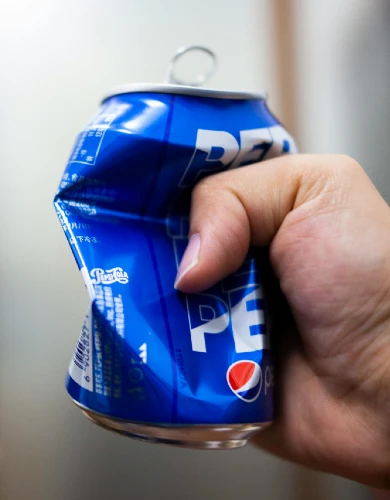Developing a restaurant waste management plan
A well-structured waste management plan is essential for restaurants to reduce waste, comply with regulations, and operate sustainably.
This guide provides key information needed to create a waste management strategy for a restaurant. Here’s what we cover:
- The legal framework for waste management in restaurants – Understand the legal obligations of waste management for restaurants in the UK.
- Waste minimisation strategies for restaurants – Learn about different ways to optimise waste generation in a restaurant.
- The financial benefits of effective restaurant waste management – Discover the significant financial rewards of implementing an effective waste management strategy.
- Monitoring restaurant waste – Learn how smart waste monitoring software can provide analytics on the performance of restaurant waste management.
- The environmental impact of restaurant waste – Explore the negative environmental consequences associated with poor waste management in restaurants.
💡 Our waste experts can arrange all the waste collection services required by a restaurant. Visit our restaurant waste collection page to request bespoke quotes for your establishment.
Legal obligations for restaurant waste management
In this section, we’ll summarise the legal requirements for restaurant waste management.
The fines for not managing restaurant waste correctly in the UK can be substantial, so it is crucial to understand these obligations fully.
Food waste in restaurant regulations
Under current recycling rules, restaurants must use a dedicated commercial food waste collection service when meeting the following criteria:
- England – All restaurants employing over 10 staff (applies from 1 April 2025).
- Scotland – All restaurants producing over 5kg of food waste per week, except for those in rural locations where no collection services are available.
- Wales – All restaurants producing over 5kg of food waste per week.
- Northern Ireland – All restaurants producing over 5kg of food waste per week.
Read our full guide to commercial food waste obligations for more information.
Cooking oil waste in restaurants
The Water Industry Act strictly prohibits commercial restaurants from disposing of used cooking oil into drains, as it can cause blockages.
Instead, it is best practice for restaurants to segregate used cooking oil and store it awaiting collection from waste cooking oil collection service.
Visit our full article on how to dispose of waste cooking oil for more information.
Waste hierarchy
The waste hierarchy provides a general framework for managing waste, prioritising waste prevention wherever possible before resorting to recycling services.
Applying the waste hierarchy in restaurants involves organising the following commercial waste collection services:
- Commercial food waste collection – Perished ingredients, customer leftovers, etc.
- Commercial glass recycling – Wine and beer bottles, etc.
- Commercial cardboard recycling – Cardboard packaging used for food deliveries.
- Commercial dry mixed recycling – Other recyclables such as plastic packaging and aluminium drinks cans.
- General business waste – Non-recyclable items like polystyrene or food-contaminated packaging.
Other restaurant waste rules
The following specific pieces of commercial waste regulations also apply to the restaurant industry:
- Duty of Care – Requires restaurant waste to be transferred to licensed waste carriers, who provide a waste transfer note that must be retained for two years.
- Sanitary Waste – Sanitary waste obligations require restaurants to provide sanitary waste bins in public and staff bathrooms and to arrange a sanitary waste collection if more than 7kg of waste is generated weekly.
Waste minimisation strategies for restaurants
Effective waste management in restaurants can significantly reduce expensive general waste collections, as well as minimise the environmental impact of waste.
Our waste experts outline practical steps for minimising restaurant waste.
Food waste audits
Regular waste audits should be conducted to track and measure the amount of food waste produced.
Identifying the sources and types of waste can help develop targeted strategies to reduce it, such as adjusting purchase orders and improving storage techniques.
Visit our waste audit page for a step-by-step guide to conducting your own waste audit.
Menu optimisation
Design menus to minimise waste by using common perishable ingredients across multiple dishes.
A carefully designed menu will reduce the quantities of perishable items that must be kept in stock, minimising unavoidable wastage from overordering.
Portion control
Adjust portion sizes to meet customer demand without excessive serving sizes that lead to leftover food.
Offering different portion sizes or the option to share dishes helps reduce food waste.
Composting
Restaurants located within the grounds of a hotel or those with access to a garden should consider creating a compost heap.
Compost heaps can convert certain types of food waste into valuable compost, which can be used for landscaping.
On-site composting can significantly reduce the volume of food waste a restaurant generates, substantially lowering waste collection costs.
Donation programs
Establish relationships with local charities to donate unsold but safe-to-eat food.
In the UK, organisations such as FareShare and The Trussell Trust can facilitate food donations, helping those in need while reducing waste.
The financial benefits of effective restaurant waste management
Waste management in most sectors is a matter of compliance. The government sets rules that dictate how waste must be stored and disposed of, and as a responsible business owner, you follow these. However, in the food and beverage sector, the story is different.
Effective waste management in a restaurant can significantly improve profitability.
Our Director, Ben Brading, a Chartered Accountant, explains why:
At the top of the waste hierarchy is ‘prevention’, as the most effective form of waste management for restaurants is to purchase ingredients efficiently, resulting in fewer leftovers.
Efficiently managing food purchases not only reduces leftovers but also cuts costs. According to WRAP data, the average cost of avoidable food waste per cover is 97 pence.
While this may seem trivial, it amounts to £3.2 billion annually for the industry.
Eliminating avoidable food waste directly improves a restaurant’s gross profit margin by reducing direct costs while maintaining customer pricing.
A secondary benefit is seen in operating costs, where you’ll reduce commercial waste collection costs by lowering your exposure to the landfill tax.
Monitoring waste levels in your restaurant
The financial gains from effective restaurant waste management are so compelling that digital waste monitoring solutions are being widely adopted across the hospitality industry.
Waste monitoring technologies use real-time data collection from smart weighing sensors on bins to gather hourly data on waste generation for each waste type.
Cloud-based waste management software collates the data from individual sensors to provide detailed insights into waste generation patterns, empowering restaurants to optimise menu planning, portion sizes, and purchases.
Monitoring software can provide key restaurant waste KPIs, such as waste per meal served, which can be tracked over time to measure improvements in waste management.
The environmental impact of restaurant waste
In this section, we’ll summarise the two key environmental impacts of waste produced by restaurants, including advice on reducing the environmental impact of commercial waste.
Food waste and greenhouse emissions
One of the most significant environmental issues caused by restaurant waste is food waste. When food is discarded and sent to landfills, it decomposes and generates methane gas, a harmful greenhouse gas.
The impact of food waste in landfills can be avoided by arranging a commercial food waste collection, which will transport food waste to one of the following environmentally friendly disposal facilities:
- Anaerobic Digestion – Food waste is used to generate renewable biogas.
- Composting – Composting facilities convert food waste into high-quality agricultural fertiliser.
Food packaging waste
Restaurants produce large amounts of packaging waste, including non-recyclable plastics used in packaging and food-contaminated cardboard.
These items are not readily recyclable in the UK and are generally disposed of within a general business waste bin.
General waste is transported to either a local incinerator or landfill facility, both of which are far from ideal from an environmental perspective.

